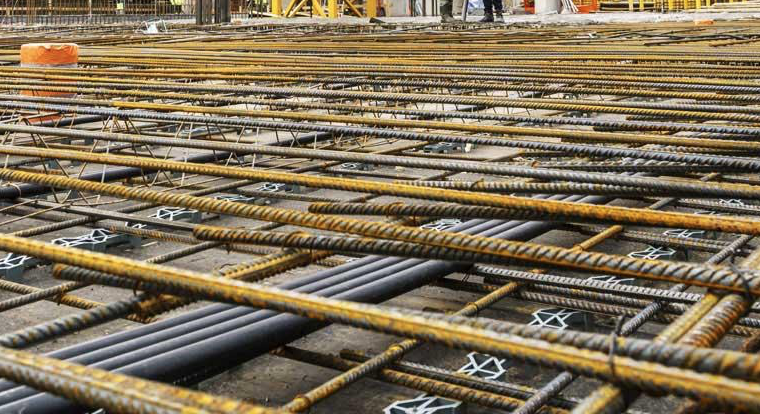
Jul 18 , 2021
By BERSABEH GEBRE ( FORTUNE STAFF WRITER )
Authorities have introduced a new directive that would legalise partnerships between local contractors and global construction firms to work in a joint venture.
Drafted by the Ministry of Urban Development & Construction, the directive seeks to provide a legal framework for joint ventures in the construction industry, contributing nearly a fifth to Ethiopia's GDP. Officials at the Ministry expect the directive would allow local contractors to regain lost ground in the construction industry and boost their financial capability, the key to competitiveness in the market. The directive is expected to enable local contractors to participate in mega-projects, which require large capital, partnering with multinational companies while fostering technology transfer in the industry.
The directive also applies to domestic partnerships.
It is a part of a series of reforms the Ministry is undertaking in the construction industry. It has implemented a new mode of classification for contractors, simultaneously restricting shares general managers can own in a firm while also drafting a set of rules to limit the number of projects that a contractor can handle at a time. The latest reform, which officials claim will boost the capacity of local contractors, comes at a time when the dominance of foreign firms in the construction industry is at its peak.
Ethiopia's construction industry grows by an average of 10pc to 15pc a year.
"There are almost no local contractors who can compete with the foreign ones due to the financial advantage they have," said Tewodros Shimeles, CEO of TABU Construction Plc.
Contractors from China have taken over most mega buildings and massive infrastructural projects, largely because of their competitive edge in capital and turnover over domestic companies.
While partnerships between contractors are not very common, there is currently no law to regulate joint ventures made between local and foreign firms, except for the commercial code, which applies to all sectors. The directive, which is expected to come into force this year, limits the number of contractors who can partake in a joint venture to no more than four – applying to domestic and foreign firms. The joint venture can either be a temporary, project-based partnership or a long-term agreement between contractors.
A contractor entering an agreement will be required to own at least 25pc of the venture while restricting the partnerships to contractors having the same grade level. All 23,000 contractors registered in the country will be eligible to apply for a joint venture.
Officials at the Ministry hope that the directive, which has been in the making since September 2020, will enable contractors to share and gain knowledge and experience, particularly through ventures with foreign firms. Contractors often use agreements made overseas to gain legal status for joint ventures due to the lack of a legal framework, according to Tewederos Tegegne, head of the Construction Industry Reform Office under the Ministry.
"We hope it'll have a positive impact on the construction industry," said Tewabe Miheret, a legal expert at the Ministry's Construction Legal Framework Directorate.
The directive was put forward to the industry lobby group three months ago. Its leaders see it as a good start though they have some misgivings, including a lack of detailed preconditions for overseas firms.
The industry group wants to see the directive set experience requirements for foreign contractors who come here to work through a joint venture, according to Girma Habtemariam, president of the Construction Contractors Association. He also wants the Parliament to pass it as a law rather than a directive.
"It will have more depth," he said.
Others in the industry also see some potential issues.
"There are huge financial, technological, and professional differences between foreign and domestic firms," said Tewodros, the CEO.
Haben Abraha, a construction engineer, is more upbeat about the directive but urged the Ministry to include a clause limiting a foreign contractor's ownership in a joint venture.
"It should favour domestic contractors," said Haben.
PUBLISHED ON
Jul 18,2021 [ VOL
22 , NO
1107]

Radar | Jan 05,2019

Fortune News | Apr 06,2019

Fortune News | Aug 21,2021

My Opinion | Jul 22,2023

Fortune News | Oct 05,2025

View From Arada | Nov 14,2020

Fortune News | Aug 24,2019

Featured | Jan 11,2020

Viewpoints | Oct 26,2024

Fortune News | Apr 09,2022

Dec 22 , 2024 . By TIZITA SHEWAFERAW
Charged with transforming colossal state-owned enterprises into modern and competitiv...

Aug 18 , 2024 . By AKSAH ITALO
Although predictable Yonas Zerihun's job in the ride-hailing service is not immune to...

Jul 28 , 2024 . By TIZITA SHEWAFERAW
Unhabitual, perhaps too many, Samuel Gebreyohannes, 38, used to occasionally enjoy a couple of beers at breakfast. However, he recently swit...

Jul 13 , 2024 . By AKSAH ITALO
Investors who rely on tractors, trucks, and field vehicles for commuting, transporting commodities, and f...

Oct 11 , 2025
Ladislas Farago, a roving Associated Press (AP) correspondent, arrived in Ethiopia in...

Oct 4 , 2025
Eyob Tekalegn (PhD) had been in the Governor's chair for only weeks when, on Septembe...

Sep 27 , 2025
Four years into an experiment with “shock therapy” in education, the national moo...

Sep 20 , 2025
Getachew Reda's return to the national stage was always going to stir attention. Once...